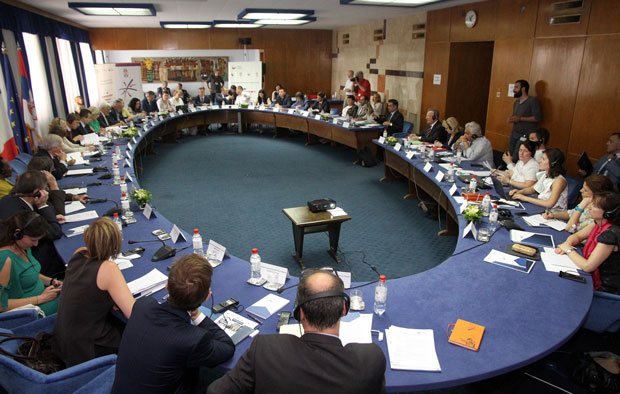Governance and Organization

How UNHCR is Run and Structured
The UN refugee agency is governed by the UN General Assembly and the Economic and Social Council (ECOSOC). The UNHCR Executive Committee, composed of 79 members, approves the agency's biennial programmes and the corresponding budget. These are presented by the High Commissioner (currently António Guterres), who is appointed by the UN General Assembly.
The UN refugee agency's mandate is defined by the 1950 UNHCR Statute. In 2003, the General Assembly extended the organization's mandate "until the refugee problem is solved." The High Commissioner reports annually to ECOSOC and the General Assembly on the work of UNHCR.
As head of the organization, the High Commissioner is responsible for
the direction and control of UNHCR. He/she directs the work of UNHCR
with the assistance of a Deputy High Commissioner and Assistant High
Commissioners for Protection and Operations.
The agency has a national and international staff of more than 6,600 staff working in more than 110 countries.
Most
UNHCR operations are in the field. The worldwide operation has become
highly complex, ranging from recruitment of new staff and ensuring their
security in dangerous situations to the procurement of everything from
medical supplies and bulk food shipments to aircraft charters. Specific
departments, mostly based in the Geneva headquarters, oversee key areas,
such as operations, protection, external relations, human resources and
finances. A number of regional bureaux liaise between overseas offices
and headquarters.
In the field, UNHCR's core work is managed from
a series of regional offices, branch offices, sub-offices and field
offices. The High Commissioner's representatives head operations in the
countries where the agency works, while there are also a number of
regional representatives.



